Get exclusive updates about the gallery, latest art exhibitions, events and featured artists. Sign up to our newsletter!
Orange Project Building, Art District, Lopue’s Annex Building, Mandalagan Bacolod City, Philippines 6100
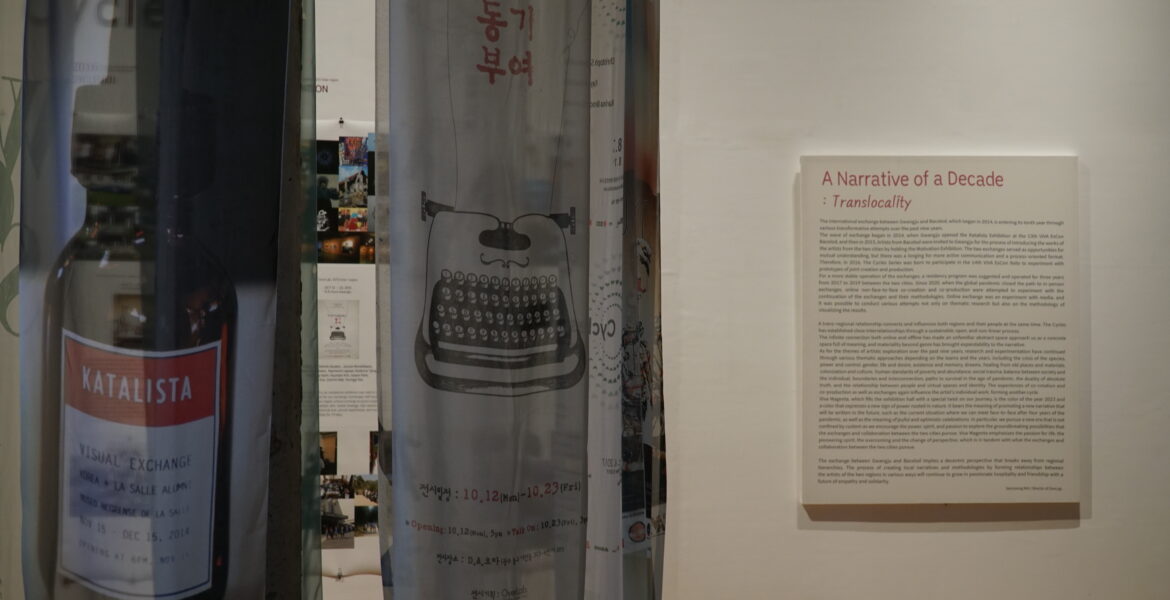
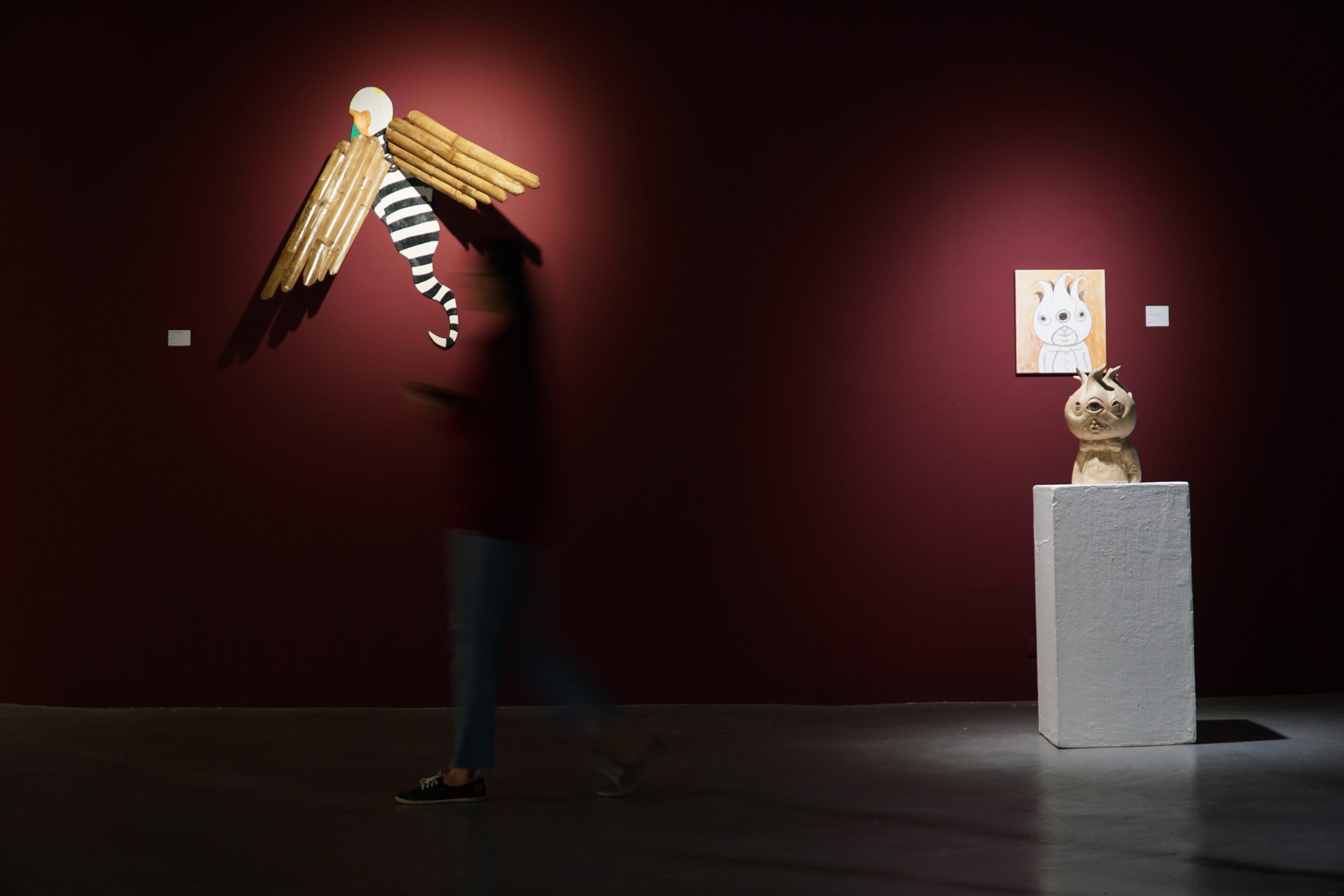
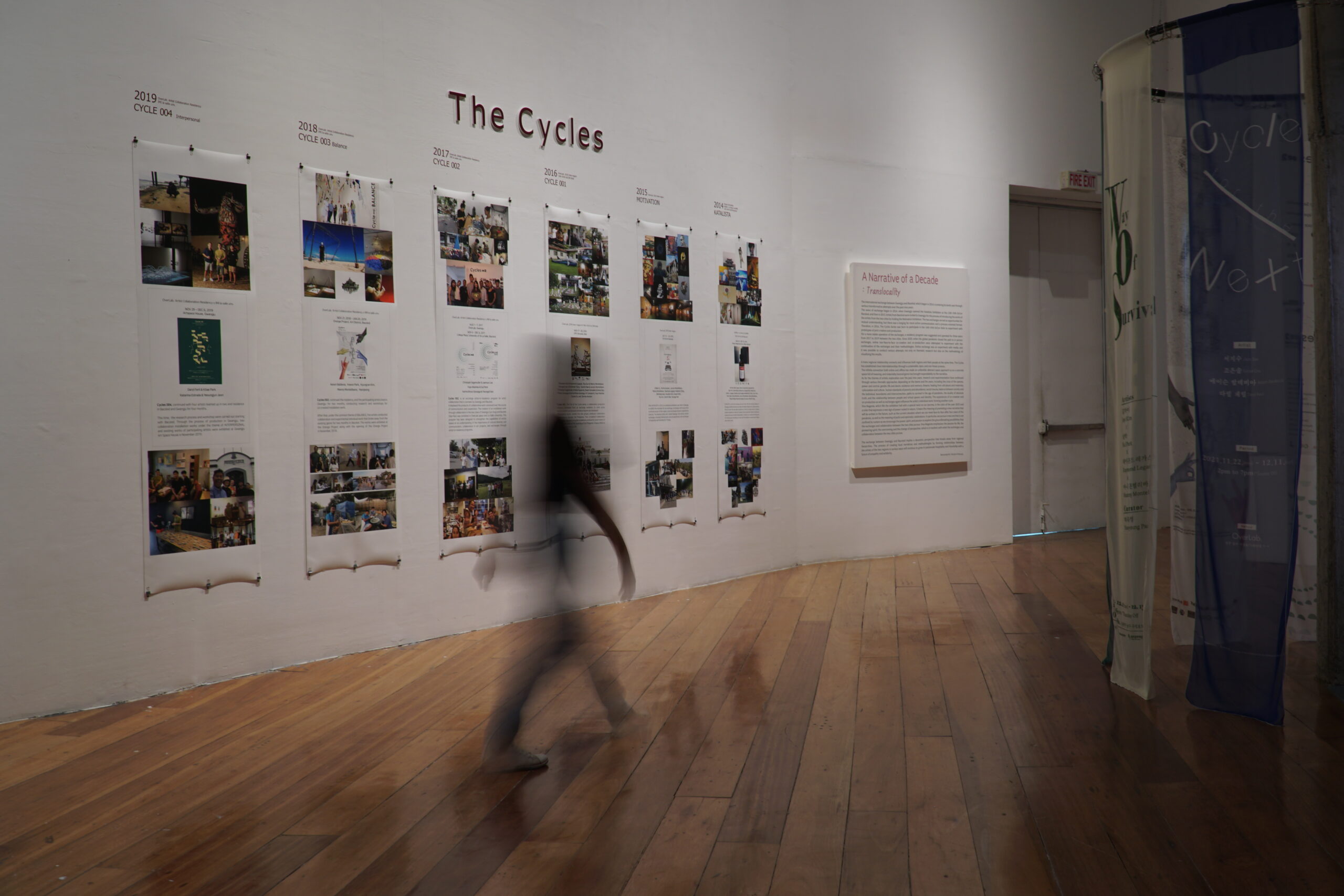
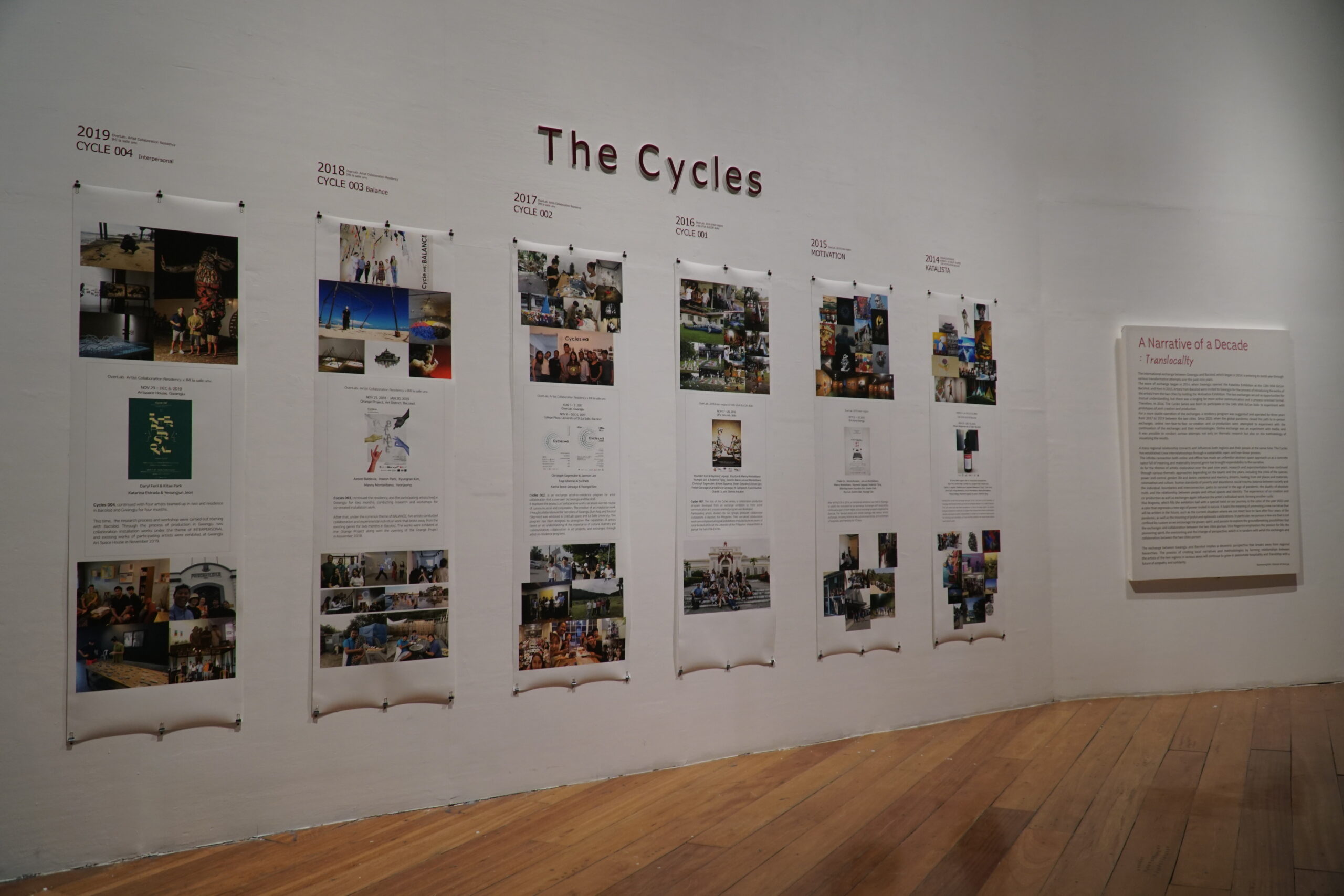
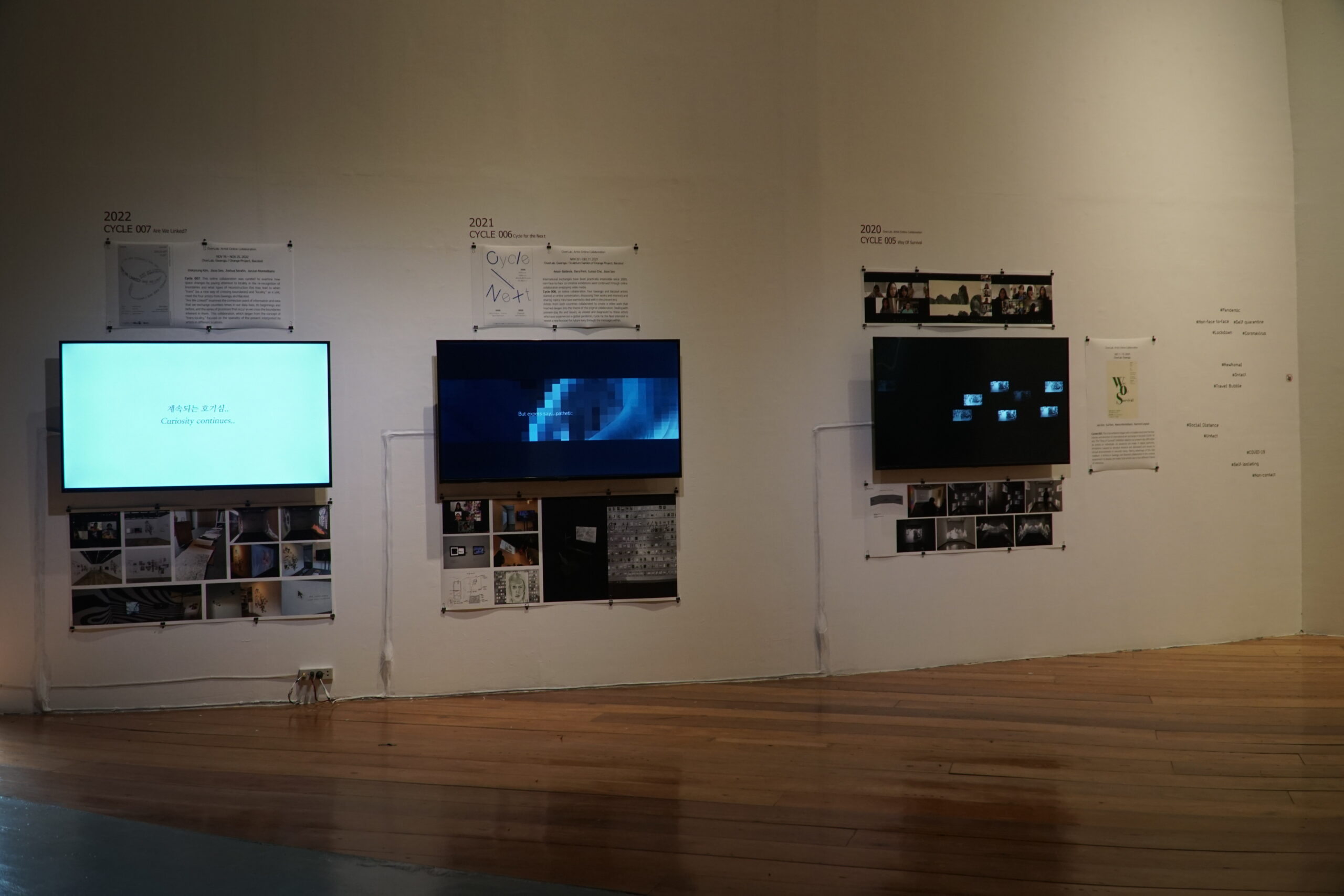
Photos by Nonie Gallenero
A Narrative of a Decade: Translocality
By Seonyoung Kim
The international exchange between Gwangju and Bacolod, which began in 2014, is entering its tenth year through various transformative attempts over the past nine years.
The wave of exchange began in 2014, when Gwangju opened the Katalista Exhibition at the 13th VIVA ExCon Bacolod, and then in 2015, artists
from Bacolod were invited to Gwangju for the process of introducing the works of the artists from the two cities by holding the Motivation Exhibition. The two exchanges served as opportunities for mutual understanding, but there was a longing for more active communication and a process-oriented format. Therefore, in 2016, The Cycles Series was born to participate in the 14th VIVA ExCon Iloilo to experiment with prototypes of joint creation and production. For a more stable operation of the exchanges, a residency program was suggested and operated for three years from 2017 to 2019 between the two cities.
Since 2020, when the global pandemic closed the path to in-person exchanges, online non-face-to-face co-creation and co-production were
attempted to experiment with the continuation of the exchanges and their methodologies. Online exchange was an experiment with media, and it was possible to conduct various attempts not only on thematic research but also on the methodology of visualizing the results.
A trans-regional relationship connects and influences both regions and their people at the same time. The Cycles has established close interrelationships through a sustainable, open, and non-linear process. The infinite connection both online and offline has made an unfamiliar abstract space approach us as a concrete space full of meaning, and materiality beyond genre has brought expandability to the narrative.
As for the themes of artistic exploration over the past nine years, research and experimentation have continued through various thematic approaches depending on the teams and the years, including the crisis of the species, power and control, gender, life and desire, existence and memory, dreams, healing from old places and materials, colonization and culture, human standards of poverty and abundance, social trauma, balance between society and the individual, boundaries and interconnection, paths to survival in the age of pandemic, the duality of absolute truth, and the relationship between people and virtual spaces and identity. The experiences of co-creation and co-production as well as exchanges again influence the artist’s individual work, forming another cycle.
Viva Magenta, which fills the exhibition hall with a special twist on our journey, is the color of the year 2023 and a color that expresses a new sign of power rooted in nature. It bears the meaning of promoting a new narrative that will be written in the future, such as the current situation where we can meet face-to-face after four years of the pandemic, as well as the meaning of joyful and optimistic celebrations. In particular, we pursue a new era that is not confined by custom as we encourage the power, spirit, and passion to explore the groundbreaking possibilities that the exchanges and collaboration between the two cities pursue. Viva Magenta emphasizes the passion for life, the pioneering spirit, the overcoming and the change of perspective, which is in tandem with what the exchanges and collaboration between the two cities pursue.
The exchange between Gwangju and Bacolod implies a decentric perspective that breaks away from regional hierarchies. The process of creating local narratives and methodologies by forming relationships between the artists of the two regions in various ways will continue to grow in passionate hospitality and friendship with a future of empathy and solidarity.
Get exclusive updates about the gallery, latest art exhibitions, events and featured artists. Sign up to our newsletter!
Orange Project Building, Art District, Lopue’s Annex Building, Mandalagan Bacolod City, Philippines 6100